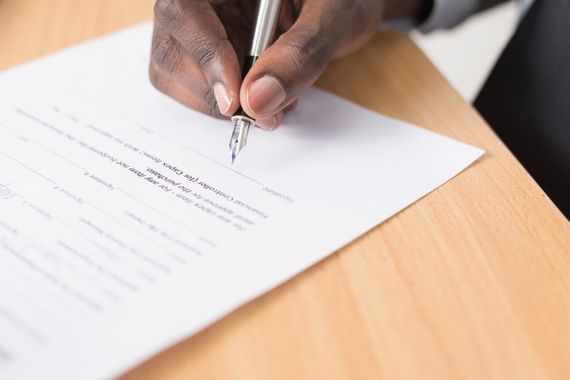Blog

Volunteer movement in Ukraine: foreign citizens` participation
- Registration of a public formation
- Activities of representative offices of foreign non-governmental organizations
- Legalization of foreign citizens – volunteers in Ukraine
Foreign citizens have always actively helped Ukraine in various spheres and were widely involved in the Ukrainian volunteer movement, which has now become especially important due to the full-scale armed aggression of the Russian Federation against Ukraine. That is why it is important to consider the issue of organization of the activities of foreign volunteers in Ukraine and their legal integration into the Ukrainian volunteer movement.
Foreigners citizens can volunteer through non-profit organizations registered as legal entities in Ukraine and included to the list on the website of National social service of Ukraine.
Therefore, the organization must meet the following criteria:
– Registered as a legal entity in Ukraine;
– Listed in the register of non-profit organizations;
– Included in the list of the National social service of Ukraine (here – NSSU).
Registration of a public formation in the Unified State Register of Legal Entities, Individual Entrepreneurs and Public Formations
The most common types of public formations that can be used for volunteering are non-governmental and charitable organizations. An NGO may act in the form of an organization or a union.
The formation of an NGO is carried out at the constituent meeting of its founders and is documented with the minutes of association. Within 60 days from the date of the meeting, the NGO must be registered according to the respective law. The minutes of association and charter do not require notarization.
For registration, you need to submit to the state registrar at the location of the public formation:
– Application;
– Minutes of association;
– Charter.
After the state registration of a legal entity, the registration application and copies of the constituent documents, certified by the signature of the head or representative of such organization, must be submitted to the State Tax Service for assignment of the non-profit status.
The application for registration of a legal entity as a non-profit may be submitted simultaneously to the state registrar as an annex to the application for state registration of the establishment of a legal entity.
The non-profit status
To define organization as non-profit, certain criteria must be met, namely:
- the constituent documents of such an organization must contain a prohibition on the distribution of income (profits) or part thereof among the founders (participants), members of such an organization, employees (except for remuneration of their labor, accrual of a single social contribution), members of governing bodies and other related persons;
- the constituent documents of the organization provide for the transfer of assets to one or more non-profit organizations of the corresponding type or inclusion in the budget revenue in case of termination of such a legal entity (as a result of its liquidation, merger, division, accession or transformation).
Adding into the list of the NSSU
Foreigners can carry out volunteer activities through those organizations and institutions that involve volunteers in their activities, information about which is available on the official website of the central executive body that implements the state policy in the field of volunteering. Such body in Ukraine is the NSSU.
Organizations that have the right to involve volunteers in their activities and information about which is published on the official website of the NSSU, have the right to invite foreigners and stateless persons to carry out volunteer activities in Ukraine. Such an invitation is necessary for a foreign citizen to obtain a long-term visa type D and consequently obtain a temporary residence permit.
Organizations and institutions that involve foreigners and stateless persons in volunteer activities have special responsibilities in the field of migration, namely:
- within 5 business days from the start of the volunteering activities of the specific foreigner, inform the NSSU in writing.
- within 5 business days from the date of the termination of such activities, inform the State Migration Service of Ukraine.
Activities of branches/representative offices of foreign non-governmental organizations
Volunteer activities can also be carried out through the branches, departments, representative offices and other structural units of foreign non-governmental organizations. State registration in Ukraine of a separate subdivision of a foreign non-governmental organization, representative office, branches of a foreign charitable organization is carried out through its accreditation without acquiring the status of a legal entity.
The documents specified by law are submitted for registration to the Ministry of justice of Ukraine. Documents issued by the foreign state must be legalized (consular legalization or apostille) and translated into Ukrainian with notarization.
Legalization of foreign citizens – volunteers in Ukraine
Foreigners and stateless persons who are legally residing in Ukraine and have legal capacity are allowed to become volunteers.
The law provides for the right of volunteers to proper conditions for volunteering, provision of special protective equipment, reimbursement of expenses related the implementation of volunteer activities, including the costs of obtaining a visa, travel, postal and telephone services, medical examination, vaccination and other medical and preventive measures directly related to the provision of volunteer assistance.
Foreign citizens who carry out volunteer activities can stay in Ukraine legally within the established terms of stay for states with visa-free entry regime/within the period specified by visa for states with visa entry, and under a temporary residence permit.
In order to obtain a temporary residence permit, a foreigner must obtain a long-term visa type D (D-10), which indicates the grounds for future stay – volunteering in Ukraine.
N.B. There is only a limited list of countries whose citizens do not need a D-visa to obtain the temporary residence permit in Ukraine.
The purpose of stay in Ukraine for the visa D-10 obtaining is:
- participation in international and regional volunteer programs or
- participation in the activities of volunteer organizations.
The participation of a volunteer organization in the process of legalization of a foreigner on the territory of Ukraine is required both at the stage of forming a package of documents for the visa obtaining, and at the stage of submitting documents for obtaining a temporary residence permit.
A temporary residence permit is issued for one year and could be extended if there are grounds for that.
Among the necessary documents for obtaining a temporary residence permit are the following standard documents:
- passport document with the visa type D-10;
- translation of the passport document, certified by a notary;
- health insurance policy for the entire period of stay in Ukraine;
- receipt of payment of the administrative fee;
and
- statement of the state body responsible for the implementation of the volunteer program or statement of the organization or institution that involves volunteers in its activities;
- original of the Extract from the Register of Legal Entities, Individual Entrepreneurs and Public Organizations
In case a volunteer carries out his/her activities in Ukraine by participating in the activities of branches, departments, representative offices or other structural units of foreign non-governmental organizations he must obtain a visa type D-07, and for the temporary residence permit application he must bring a set of standard documents, as well as a statement of the relevant structural unit of the foreign organization and a document on the registration of such a unit, for example, a certificate or extract from the State Register of Legal Entities, Individual Entrepreneurs and Public Organizations.
According to the law, entry to Ukraine, stay in Ukraine and transit through the territory of Ukraine of foreigners and stateless persons is subject to sufficient financial security. Therefore, in the application, the host party (an organization that involves volunteers in its activities, a structural unit of a foreign non-governmental organization) indicates its obligation to cover all expenses of the foreigner on the territory of Ukraine and provide financial support to the foreigner for his all the period of his stay in Ukraine.
Therefore, in order to carry out volunteer activities as a foreigner on the territory of Ukraine, it is necessary to find or register a volunteer public formation.
If you need to find or register a volunteer organization, contact us!

Migration changes
Migration changes dated 21/10/2022: expired residence permit are valid during the wartime
On October 21, 2022, the Cabinet of Ministers of Ukraine adopted the Resolution “Some Issues of Implementation of Legislative Acts in the Field of Migration in time of Martial Law”. The Resolution provides an opportunity for foreigners to legally stay and enter the territory of Ukraine having temporary or permanent residence permits, which have expired or needed to have been exchanged during the martial law period.
The right to legally stay in Ukraine and enter it under the expired documents or the documents which have had to be exchanged after February 24, 2022 retains for the period of martial law and within 30 calendar days from the date of its termination or cancellation.
This rule does not apply exclusively to citizens of the Russian Federation.
The Government has established an obligation for foreigners subject to the Resolution, within 30 calendar days from the date of termination or cancellation of martial law, to submit documents for the exchange of temporary or permanent residence permits, which expired or were subject to exchange after February 24, 2022.
In our opinion, it also provides the opportunity to exchange the expired temporary or permanent residence permit during the war.
A similar rule was in effect for some time during the first months of the quarantine, but then it was canceled without a transition period for legalization, and everyone, who had an expired residence permit, ended up in the status of an illegal migrant. Therefore, according to our practice, we still advise you to exchange residence permits in time.

UBO & legal ownership structure
The Ministry of Finance of Ukraine has finally adopted the forms for the ownership structure. This means that starting from July 11, 2021, the documents on the UBO (Ultimate Beneficial Owner) and legal ownership structure will have to be submitted when registering a new business entity.
Starting from July 11, 2021, a 3-month period (basically for directors/managers of existing legal entities registered prior to April 28, 2020) for submitting the first ownership structure reports starts.
What Documents Are Required?
For individuals –founders (who are the UBO): certified copies of passports are required (where such persons are not citizens of Ukraine, the respective personal document with a translation is required).
For legal entities – founders: a certified extract from the business registry shall be submitted.
In the case of a chain of owners, official documents confirming the structure and the grounds for exercising control (influence) are also required.
Direct and Indirect Control
When a legal entity is established directly by an individual, and the individual owns 25% or more shares, there occurs direct control over the legal entity. In this case, it is easy to track the connection.
When it comes to the cases where the UBO is identified through a number of other legal entities, it is necessary to provide the documents that can prove that such UBO has de jure and de facto control over each legal entity in the chain.
First Steps
Within the period from July 11 – October 11, 2021, all legal entities are required to submit the documents to confirm/update their current ownership structure.
Directors/managers of legal entities will also need to provide the respective official documents. For individuals in the ownership structure: a copy of their passport, certified by a notary is required. For foreign nationals, a translation shall be provided as well.
For legal entities: extracts from business registries, other official documents proving ownership are required (documents issued abroad should be apostilled or legalized by a consulate, depending on international requirements).
When to Update?
Starting from January 01, 2022, heads of legal entities will be obliged to keep the information about the UBO and the ownership structure updated. The obligation consists of 2 parts:
1) annual reporting (within 14 days of the registration date) AND
2) in case of any changes to the structures or information about the UBO, the head of the legal entity will have 30 business days to update the information in the State Register of Legal Entities of Ukraine.
Liability
The Code of Ukraine on administrative offences provides for a fine (UAH 17,000 – 21,000) in case of failure to submit or untimely filing the information about the UBO/ownership structure. This fine is imposed on the heads of legal entities in Ukraine.

Obtaining A Tax ID in Ukraine
All individual taxpayers should be registered with the supervisory authorities by including information about them in the State Register.
The State Register shall contain information on individuals who are:
– citizens of Ukraine;
– foreigners and stateless persons, who permanently reside in Ukraine;
– foreigners and stateless persons who do not have permanent residence in Ukraine, but under the legislation are obliged to pay taxes in Ukraine, or if they are founders of legal entities established in Ukraine.
So, in which cases is the tax ID required in Ukraine?
The tax ID is used in the case of:
– payments of income from which taxes are withheld under the legislation of Ukraine;
– conclusion of civil law agreements, the subject matter of which is a taxable object subject to taxes and duties;
– bank accounts opening;
– state registration of private entrepreneurs or issuance of special permits (licenses, patents, etc.) for certain types of economic activity in favor of such persons, as well as registration of independent professional activity;
– registration of property or rights to it and other assets of individuals that are subject to taxation;
– registration of vehicles that become the property of individuals;
– in other cases provided by law.
Therefore, in order to carry out all the above actions on the territory of Ukraine, it is necessary to register with the State Register of Individual Taxpayers and obtain the tax ID.
Procedure for obtaining the tax ID
Foreigners and stateless persons shall submit documents to the territorial bodies of the State Tax Service in the regions, cities of Kyiv and Sevastopol.
Foreigners and stateless persons who have a permanent residence permit or a temporary residence permit in Ukraine may register as taxpayers in the state tax inspections in regions, cities, districts in cities, Joint State Tax Inspectorates according to the place of residence in Ukraine, specified in the residence permit.
To obtain the tax ID, foreigners shall submit the following documents:
– registration card in the specified form;
– an identity document of a foreigner, duly translated into Ukrainian and certified by a notary and a copy of such translation;
– a copy of the mark, which certifies the border crossing;
– power of attorney, certified by a notary, a copy of it, and a copy of the passport of the representative (if the documents are submitted by the representative).
Please note, in order to submit documents and obtain the tax ID, foreigners must stay in Ukraine legally and within the permitted period of temporary stay in Ukraine (not exceeding 90 days within 180 days, unless otherwise specified by international agreements or provided by visa-free entry).
To obtain the tax ID, foreigners with a temporary or permanent residence permit in Ukraine shall submit the following documents:
– registration card in the specified form;
– a temporary or permanent residence permit in Ukraine and its copy;
– residence certificate and its copy;
– power of attorney, certified by a notary, a copy of it, and a copy of the passport of the representative (if the documents are submitted by the representative).
The term for issuing a document confirming the registration of a person as a taxpayer is 3 working days.
For the issuance of the tax ID, a person shall submit the same documents that were submitted to obtain the tax ID (except for the registration card).
There is no state fee for the issuance of such a document.
It is worth noting that the Parliament of Ukraine (Verkhovna Rada) has passed a law equating digital passports to paper ones. These changes apply only to the passport of a citizen of Ukraine and the passport of a citizen of Ukraine for travelling abroad. Electronic passports in the “Diia” application can now be provided on the territory of Ukraine for identification and confirmation of citizenship, except for crossing the state border, entering and leaving the temporarily occupied territory of Ukraine. Thus, citizens of Ukraine can provide electronic passports when submitting documents to obtain the tax ID.
The law enters into force on August 23, 2021.
See also:
Digital Transformation of Residence Registration
Legislator to Strengthen the Liability for Traffic Violators

Legislator to Strengthen the Liability for Traffic Violators
The Rimslin Chambers team would like to advise you of the recent updates to the regulations on liability for traffic rules violations.
The Law of Ukraine On Amendments to Certain Legislative Acts of Ukraine Concerning Strengthening of Liability for Certain Road Traffic Safety Offenses was adopted on February 16, 2021, and came into force on March 17, 2021. This law has amended the Code of Ukraine on Administrative Offenses, the Criminal Code of Ukraine, as well as the Laws of Ukraine On Road Traffic and On the National Police.
We invite you to pay attention to the peculiarities of the recent regulations.
Legislator points
The first point is that the legislator has strengthened the liability for drunk driving (being impaired by alcohol, drugs, or other substances or medicines to a level that critically reduces attention and speed of reaction of the driver) and eliminated all the flaws of law that allowed the offenders to exempt from legal liability. The penalty for drunk driving for the first time within one year shall now amount to UAH 17,000 fine with the deprivation of the right to drive a vehicle for 1 year; for the second time in the same year – UAH 34,000 fine with the deprivation of the right to drive vehicle for 3 years and possible paid withdrawal of the vehicle, or administrative arrest for 10 days with the deprivation of the right to drive vehicle for 3 years and possible paid withdrawal of the vehicle; for the third time in the same year – UAH 51,000 fine with the deprivation of the right to drive vehicle for 10 years and confiscation of the vehicle or administrative arrest for 15 days with the deprivation of the right to drive vehicle for 10 years and vehicle confiscation.
Previously, the fines for the said offenses were UAH 10,200, UAH 20,400, UAH 40,800, respectively. Moreover, the new penalties for drunk driving were introduced – paid withdrawal of the vehicle, confiscation of the vehicle, and administrative arrest. Unlike vehicle confiscation, the paid withdrawal provides that the vehicle is seized, sold at the auction, and money received from realization is returned to the vehicle’s owner.
Henceforward it becomes more difficult to avoid liability for the following reasons. The term of drunk driving case consideration at the court is now 1 year instead of 3 months period that easily allowed to avoid responsibility in the past because of intentional delay in court proceedings, overloaded courts, etc. Besides, according to the new regulations, legal proceedings cannot be closed and the offender cannot be released from administrative liability for insignificance or due to the transfer of materials to the labor collective or public organization for consideration. It is crucial to point out that in case of repeated violation the new penalty does not replace the previous one, they are added up. In such a case, the whole term of deprivation of the right to operate a vehicle may exceed the maximum allowable 10-years period.
If any person being drunk and driving a vehicle causes a road accident with victims, such a person will be criminally charged. Article 286-1 of the Criminal Code of Ukraine has been adopted in a new edition. Now it prescribes liability in the form of imprisonment for different terms, depending on the severity of the consequences caused by the road accident. The maximum term of imprisonment is 12 years with the deprivation of the right to operate a vehicle for up to 10 years. Such a penalty is provided for offenders who caused a road accident that resulted in the death of several people.
Furthermore, the commission of the abovementioned offenses precludes the perpetrator from the opportunity to be released from liability due to effective repentance, reconciliation of the perpetrator with the victim, transfer of a person on bail, change of circumstances. Release from serving a sentence on probation, replacement of the unserved part of the sentence with a milder one, and amnesty also do not apply to drunk drivers.
The reasoning behind these strict regulations is caused by the widespread occurrence of drunk driving cases, their recurrence, the exemption of drivers from legal liability, and the significant number of victims of such offenses. In 2020 alone, approximately 130,000 drunk drivers were apprehended. More than 9,000 drivers repeated the case of drunk driving and another 5,000 of such offenses were committed for a third time, despite the fact, that such offenders have paid fines and suffered other negative consequences of such violations. Moreover, there are numerous examples of road accidents with drunk drivers involved, with dozens of casualties, and some of the drivers managed to avoid liability for the deaths of innocent victims.
Other amendments concern penalties for speeding, seatbelts non-use, driving without a license or transferring a vehicle to a person who is not entitled to operate it, or driving after being deprived of the right to operate a vehicle.
Fines
The fines for exceeding the allowed speed limit: for up to 50 km/hour is UAH 340 instead of UAH 255, for over 50 km/hour – UAH 1700 instead of UAH 510. The penalty for non-use of seat belts amounts to UAH 510, which is 10 times more than before. The incorrect installation of state license plates and dirtiness of the plates are punished with UAH 850 fine.
Please note that while driving you should always have a valid driver’s license, vehicle registration document, and insurance policy. Otherwise, you will be forced to pay a fine of UAH 425, which remained unchanged. At the same time, the legislator has added the opportunity to use all those documents and show them at the demand of police officers in electronic form, for instance, by having the “Diia” application.
For driving without a right to operate a vehicle or transferring the vehicle to a person who has no such right there is a fine of UAH 3,400. When a person that has been deprived of the right to operate a vehicle (e.g. for drunk driving) was driving again, a fine of UAH 20,400 has to be paid (previously – UAH 510), in the event of repeat offense – UAH 40,800.
The legislator has also strengthened the liability for leaving the scene of a road accident by introducing a fine of UAH 3,400, or deprivation of the right to operate a vehicle for up to 2 years, or administrative arrest for up to 15 days.
The fines for violations committed by pedestrians and cyclists were also increased, e.g. for crossing the road at the inappropriate place or against the red traffic light signal – UAH 255, for violation of traffic rules by pedestrians or cyclists, committed in a state of intoxication – UAH 680 (if repeated – UAH 850 or public service for 20-40 hours).
As to the amendments to the Law of Ukraine On Road Traffic, the rules regarding how to act when you are stopped by a police officer were introduced. In such a case the driver is obliged to stop the vehicle; keep hands in the view of a police officer and not leave the vehicle without permission; switch off the engine of the vehicle and remove the key from the ignition; submit the necessary documents for verification; put the hazard lights on; get out of the vehicle.
Finally, such a type of punishment as ‘penalty points’ has been eliminated. Previously, at the beginning of the year, every driver has been granted a certain number of points. For the specific violations of traffic rules, for example, those automatically fixed like exceeding speed limits, some of the points have been withdrawn. Once a driver had used up all the points, he/she could be forced to pay a real fine for his violations, or another type of punishment could be imposed on the driver.
It should be stressed, that foreigners and stateless persons bear the administrative and criminal responsibility for traffic rules violations in the same way as Ukrainian citizens do.
The Rimslin Chambers team is always ready to advise you on any issues on road safety and traffic rules.
See also:
How to Draw Up An Invitation for a Visa?

How to Draw Up An Invitation for a Visa?
An invitation from the host party is one of the documents submitted for the Ukrainian visa. Mostly, invitations are required for short-term visas, but in some cases an invitation is required for a long-term visa (for purposes such as assistance in the international technical project, work for the representative office/permanent establishment of a foreign company in Ukraine, religious or volunteer activities, etc.).
The invitation can be provided by a legal entity or an individual. It depends on the purpose of the visit.
An invitation from a legal entity must comply with the following requirements:
– be issued on the official letterhead;
– contain the following information:
– registration number,
– date,
– number of the legal entity in the United State Register of Legal Entities, Private Entrepreneurs and Non-Governmental Organizations of Ukraine,
– surname, name, patronymic of the invited foreigner,
– information on the date and place of birth of the invited foreigner,
– information on the citizenship of the foreigner,
– passport details of the foreigner,
– place of residence abroad,
– purpose of the trip,
– period of the planned visit,
– number of planned entrances,
– place of residence in Ukraine,
– obligation of the legal entity to assume possible costs of the invited person’s stay and departure from Ukraine,
– signature and position of the signatory.
A copy of the extract from the United State Register of Legal Entities, Private Entrepreneurs and Non-Governmental Organizations of Ukraine providing the details about the legal entity shall be attached to the invitation. Moreover, other documents from the host party may additionally be required for certain visa types.
An invitation from an individual must comply with the following requirements:
– be notarized;
– be provided by a person who legally resides in Ukraine (it means that the invitation can be provided by a citizen of Ukraine or a foreigner, who has a temporary or permanent residence permit in Ukraine);
– contain the following information:
– date,
– surname, name, patronymic of the hosting individual,
– passport details and/or permanent/temporary residence permit (for foreigners and stateless persons) of the hosting individual,
– address of residence of the hosting individual in Ukraine,
– surname, name, patronymic of the invited person,
– information on date and place of birth,
– information on the citizenship of the invited person,
– passport details of the invited person,
– place of residence abroad,
– purpose of the trip,
– period of the planned visit,
– number of planned entrances,
– place of residence in Ukraine,
– obligation of the hosting party to assume possible costs of the invited person’s stay and departure from Ukraine,
– signature of the hosting individual.
Copies of the passport and/or permanent/temporary residence permit of the hosting individual should be attached to the invitation.
If you still have questions about applying for a Ukrainian visa, please contact: kz@rimslinchambers.com
See also:

Apartment purchase in the primary market
Rimslin Chambers continues guiding you through the peculiarities of the Ukrainian real estate market on your way to buying an apartment.
In the previous article, we have considered in detail how to purchase an apartment in the secondary market. You could easily check it here.
In this article, we will focus on purchasing an apartment in a new building.
The stages of apartment purchase are as follows:
♦ Verification of all the available information and documents on the apartment or ‘due diligence’.
♦ Choosing the way of investment and signing the agreement.
♦ Registration of the ownership rights.
Stage 1: Due Diligence
Prior to signing an apartment sale and purchase agreement, it is advisable to carry out the due diligence procedure of this apartment. There is no obligation to do so, but we always analyze any potential risks relating to the deal in order to be sure whether it is reliable for our clients to contribute funds in purchasing such an apartment.
If you want to be sure that the potential investment object is trustworthy and your money is not to be wasted, the due diligence procedure is a must.
What exactly should be checked?
1) information on real estate developer (general contractor)
The history of the works, reputation, other projects, the real estate developer members, whether it has any debts to the state or other persons, including tax debts, whether there are no arrests and other encumbrances, whether it is not bankrupt or engaged in other court proceedings.
For this purpose, it is necessary to monitor the State Register of Legal Entities, the Register of Enforcement Proceedings, Unified Register of Debtors, the registers of the State Fiscal Service of Ukraine, Unified State Register of Court Decisions, other registers and databases.
It is also important to check the Unified State Register of Court Decisions on the information concerning the object of construction and the land plot, whether the buyers have sued the developer for breach of the obligations.
2) the legal regime of the land plot, on which the house is built or under construction
It should be borne in mind that the land plot on which construction takes place should be allocated for the specified purposes (see the Public Cadastral Map of Ukraine) – the construction and maintenance of a multi-apartment residential building, and the appropriate purposes should be indicated in the town planning documentation. Otherwise, a permit for the construction of such a house may be appealed to the court, leading to years of litigation and construction may not be completed.
You should verify whether the land plot is in the ownership or temporary used, who the owner or leaseholder is (check the respective lease agreement, certificate of land ownership, superficies agreement, etc.) If the land plot is not in the ownership, the lease term should not be less than the approximate term of the house completion and occupancy permit. The developer or constructor shall be indicated as the owner or tenant.
The relevant documentation regarding the specifics of the land plot itself (documents for changing the intended use of the land plot (if any available), technical documentation for setting the boundaries of the land plot, its division and/or consolidation, etc.) should also be checked.
3) permission documentation
You should verify whether the developer has any urban conditions and restrictions (for buildings located in Kyiv, such is checked with the Urban Cadastre of Kyiv). It is a crucial point since the city conditions and restrictions specify the number of floors in the building, the distance from the building to other elements, etc.)
There occurred a precedent in Kyiv recently when a developer was obliged to demolish several floors of the building to comply with the urban conditions and restrictions and obtain all the necessary documents to legally complete construction.
The next point of verification – whether there is a permit to perform construction work (NB! The declaration of the commencement of construction work is not a permit); the contractor’s license for construction; the project documentation; the document confirming the mandatory examination of construction projects: the liability classes (consequences) of the objects of the type CC2 (average consequences – houses up to 100 m high, from 20 to 300 permanent residents) and the type CC3 (significant consequences – from 100 m high and 300 permanent residents). The agencies approved by the government for conducting the mandatory examination of the construction projects can be checked here.
Other permitting documents include permits for special types of work, an order for a building address assignment to a new construction object, approval of construction conditions by the general contractor, the permission of specialized departments when the construction is executed in historic and architectural zones, exclusion zones, etc.
Often enough, a developer may downgrade the liability classes (consequences) such as indicating CC1 class (private house construction) instead of CC2 (construction of an apartment building up to 100 m high) for their own purposes, e.g. to avoid obtaining the costly license mandatory for CC2 and CC3 objects. However, this may result in an inability to legally commission the property and register the title.
Said another way, the higher the consequences class, the more difficult it is to bring both the legal and project aspects of the facility construction in compliance with the requirements of the legislation.
Hence, when selecting the object type CC2, and especially CC3, all the documents shall be checked as carefully as possible.
Depending on the status of the facility, you should also verify:
♦ An agreement on urban utility services communication, with heat, water, and energy supply included. The supporting documents may include contracts for public utility services;
♦ Certificate on completion of construction;
♦ A technical passport for an apartment;
♦ Certificate on facility commissioning;
♦ Certificate (an order of the district administration) on the postal address assignment;
♦ An agreement with the city council on payments of the share contribution to the city infrastructure (NB! Without payments under such an agreement the building may fail to receive the postal address, which will lead to the failure of the investor’s title registration).
Construction permits, construction completion certificates and commissioning certificates shall be verified with the State Architectural and Construction Inspection Register of permitting documents.
Besides, it is advisable to check whether there exists an increased public interest and attention to the facility (public disputes, rallies, and mass protests, etc.) and whether the developers and constructors are involved in some illegal schemes of money laundering or political scandals.
You can also check the desired developer in reliability ratings published by media resources.
The due diligence procedure is rather complicated, but at the same time, it is a substantial step for apartment purchase in Ukraine. Without it, one cannot be 100% sure that there will be no problems with the purchased apartment.
Stage 2: Ways of Investment and Signing the Agreement
The legislation provides 4 ways for developers to receive funds from individuals for the construction of facilities – investing in construction financing funds, issue of target bonds, participation in collective investment institutions, and in real estate transaction funds. Developers also widely use other methods of accumulating funds for construction (presale contracts, sale and purchase agreement of property rights), which are not expressly prohibited by law but are absent in specific regulations, and are governed by general terms of civil legislation.
Every way of investment has its pros and cons. The main disadvantage of all the ways is that nobody can guarantee that the building will be commissioned on time or that the developer will not go bankrupt. To minimize these risks, checking every single thing on the stage of due diligence is the best option for the investor.
The first investment option is about entering into an agreement with the construction financing fund. The manager of the fund is a bank or other licensed financial institution that has an agreement with the constructor, which undertakes to build one or more construction projects and commission them as required by law and transfer to the fund. The fund is obliged to finance the construction according to the agreement.
The fund receives money for construction from potential investors who intend to buy an apartment. After concluding the agreement with the fund and paying the price of the property under the terms of agreement (which may be partially paid), the investor receives the certificate of participation in the construction financing fund (it shall indicate in details all the features of the apartment – area, floor, number, etc.) After the building has been commissioned, an investor has to sign the apartment acceptance/transfer certificate or refuse from signing and hold a demand against the developer on the elimination of construction defects. After signing, the investor receives another certificate, under which the ownership right is registered.
The main advantage for the investor is that the use of money by the developer is monitored and controlled. In the event of non-fulfillment of the obligations, the fund may even change the developer. However, there may be cases when developers are closely linked to and influenced by the funds in a way that funds do not even aim to control the progress of construction and track the use of money for its intended purpose. This can lead to long-term construction.
The second option is to invest in target bonds. The lot of such bonds corresponds to the area of one apartment. The target bond indicates only its series, number, the number of square meters and does not specify an apartment itself (with a description of its exact location). Therefore, it is necessary not only to purchase a lot of target bonds but to conclude with the developer the ‘booking’ agreement regarding a particular apartment where area equals the number of square meters indicated in the bond.
Once construction is finished the developer repurchases the bonds and the investor receives the apartment. The bonds are issued under the control of the National Securities and Stock Market Commission (NSSMC).
Participation in collective investment institutions is similar to a construction financing fund with the only difference being that the bank (in construction financing fund) as a third party between an investor and developer is replaced by an asset management company (in collective investment institutions).
The potential investor concludes a forward contract with the asset management company. Such a contract is registered on the stock exchange. Under this agreement, the investor acquires property rights to the apartment, pays the asset management company, and undertakes to pay the established price to the constructor after the building is commissioned. The forward contract shall include such important features as the payment deadline, the terms of construction completion, commissioning date, apartment number, floor, area, etc. After the building is commissioned, the contractor and investor conclude the main agreement under which the apartment is being transferred to the investor based on the existing property rights.
Funds of real estate transactions are not common in Ukraine, though they are considered a legitimate form of investment.
Presale contracts and agreements on the sale and purchase of property rights (title deeds) are a bit risky forms of investment. They allow the developer to sell the same apartment twice and more since such agreements are not registered anywhere and may have standard and vague terms that do not specify the apartment that is purchased at the time of the start of construction.
The investor should remember that the standard contract is always in favor of the developer. Therefore, it is always a good idea to consult a lawyer about the terms of the particular agreement proposed by the developer.
At the stage of construction, you do not acquire any ownership rights or receive any title deeds by concluding any of the above contracts. For these reasons, it is crucial to study every document regarding the constructor and developer, and carefully read all the terms of the proposed agreement before signing. Otherwise, you risk wasting your investment or being engaged in long-term litigation, or waiting for decades for the building to be finally constructed or commissioned.
Stage 3: Registration of Ownership
Once the title has been registered, the investor becomes the rightful owner of the apartment. The registration can be done through the Administrative Services Center.
Before the registration, you will also have to obtain a technical passport for the apartment. You should also request the developer to provide you with certified copies of the document confirming that the building has been commissioned and assigned an address.
The package of the documents required for registration depends on the way of investment you have chosen (e.g., in case of investing in target bonds, you have to submit the target bonds purchase agreement and the ‘booking’ agreement).
Rimslin Chambers has extensive experience in real estate deals in both the primary and secondary real estate markets and is always ready to advise you on all and any issues you have concerning apartment purchase at any stage from choosing a reliable property to signing the agreement and registering ownership rights.

How to purchase real estate (apartment) in Ukraine?
Foreigners coming to Ukraine to start a business, or to get married or employed, or for any other reason, usually consider purchasing an apartment or a house in Ukraine.
In response to popular requests from our clients, the Rimslin Chambers team has prepared a brief guide on how a foreigner can buy an apartment in Ukraine, and which intricacies and pitfalls shall be considered, as the real estate market trends and legislation tend to be ever-changing.
A foreigner can choose to purchase an apartment in a new building or the secondary market. It depends on what you prefer. Anyway, all the papers and information have to be thoroughly and profoundly checked in both cases. However, there are some differences between these two options.
The essential point to keep in mind is that you can issue a power of attorney and your legal representative will do all the necessary actions to buy the apartment on your behalf.
We are ready to support you during the following stages of the apartment purchase, which have their own peculiarities depending on whether you purchase in the primary or secondary market:
1. Conducting due diligence.
2. Negotiations and a presale agreement.
3. The final apartment sale and purchase agreement. Payment. Registration of ownership.
Step 1: Conducting Due Diligence
If you find a property of your interest on the secondary market, don’t make a hasty decision to purchase it, as it should be well-checked, the same as the apartment in a new building.
Due diligence procedure comprises verification of the following papers and information:
1. a) legal status of the house where the apartment is located:
You should check the status of the building where the apartment is located. Is it an architectural monument or a cultural heritage object of Ukraine (it could be verified via the State Register of Ukrainian Immovable Monuments of state and local significance)?
If so, you face a complicated task on the check of the nuances (whether there is consent from the Ministry of Culture for the apartment alienation, if there is a valid protection contract, the act of technical condition of the monument that should be updated every 5 years, whether the term of one month expired, during which the State Department of Cultural Heritage Protection enjoys its right of privileged purchase, etc.)
1. b) title documentation to the property, such as an apartment sale and purchase contract or other document confirming the ownership of the seller (certificate of ownership, deed of gift, etc.), technical certificate (passport) for the apartment, a document confirming the registration of the ownership rights of the previous owners (shall be checked through the extract from the Register of Titles to Real Estate or the Certificate from the BTI (Bureau of Technical Inventory).
2. c) arrests, mortgages, other encumbrances on the property
It is necessary to check the information about the apartment in the public registers, e.g. whether the apartment has been mortgaged (checked with the Register of Titles to Real Estate) or is a subject of litigation (checked with the Unified State Register of Court Decisions, Registry of Enforcement Proceedings).
1. d) verification of the information about the seller (whether they are married (if so, notarized consent to sell the apartment from the spouse is required), whether they have minors, or disabled persons, or have unpaid debts (checked with the Unified Register of Debtors).
If it is a company, it has to be checked whether it is not bankrupt or engaged in any court proceedings.
If there are children who have the ownership rights to the apartment or rights to use it, there should be a consent of custody and guardianship agency on the alienation of the apartment. Otherwise, you run the risk of getting into a protracted legal battle and losing your apartment, if the deal contravenes or narrows the scope of existing property rights of the child, since in this case the deal could be declared invalid by the court.
1. e) documents of the owner(s) of the apartment (passport data, tax registry ID number, marriage/divorce certificates, birth certificate (if one of the owners is a minor), etc.).
2. f) checking whether debts on utility payments exist for the apartment.
3. g) revision of the persons registered in the apartment
If the seller does not provide information about the persons registered in the apartment, you need to request a notary to check the persons registered in the premises in order to find out the absence of the rights of minors and disabled persons to the apartment.
Step 2: Negotiations and a Presale Contract
Once the due diligence procedure is done, you can launch negotiations with the seller of the real estate and sign a Presale (deposit) contract.
According to the terms of the Presale contract, the parties agree on the terms of the main agreement: price, payment process, terms, liability for non-signing the main agreement.
To secure the rights of both parties under the Presale contract, the buyer usually pays a deposit that confirms his intention to buy the apartment and the seller undertakes not to sell the apartment to any other person. If the buyer evades the conclusion of the main contract within the stipulated terms, the sum of the deposit shall remain at the seller. And if the seller refuses to conclude the main contract, the buyer receives the doubled deposit back.
Step 3: The Final Apartment Sale and Purchase Agreement. Payment. Registration of Ownership
At this stage, the deal is being carried out and closed: the apartment sale and purchase agreement (hereinafter – “SPA”) shall be concluded, notarized and the ownership rights shall be registered by a notary within the Register of Titles to Real Estate.
Before signing and notarization of the SPA the parties must:
♦ evaluate the property since the price cannot be lower than the average market value of the apartment;
♦ pay a mandatory pension tax (fee) in the amount of 1% of the property value. This fee is usually born by the Buyer;
♦ pay a state fee of up to 1% of the property value to the notary certifying the apartment SPA.
The Buyer pays for the property before or after the signing of the SPA, however, becomes the owner of the realty upon signing the agreement, its notarization and registration within the Register of Titles to Real Estate.
In Ukraine, all payments over 50,000 UAH (approximately US $2,000) must be transferred through a bank. However, the majority of real estate deals between individuals are carried out through cash payments.
Rimslin Chambers has considerable experience in real estate support activities and advising both on the secondary and primary real estate market of Ukraine, as well as in the successful completion of the real estate deals.
You are welcome to read our next article on purchasing an apartment in a new building here.

Migration Quotas for IT, part 2
Requirements for IT specialists who want to apply for Ukrainian immigration permit are amended!(Order №1847 as of September, 09, 2020)
Read Part I of the article at our Facebook page
Read the first part of the article on Exaptpro
Now, there are mandatory qualification requirements and additional ones. The quotas were also redistributed:
• Manager of information security system – 100 applicants;
• Specialist in information security organization (that includes now Specialists in organization of protection of the restricted data, Professionals in information security organization and Professionals in organization of protection of the restricted data) – 300 applicants;
• Software engineers (Senior software engineers, Design Engineer (in electronics), Software Engineer) – 3000 applicants;
• Analysts (consolidated data analysts, analysts in computer systems, analysts of computer communications, Analysts of operation and application software) – 200 applicants;
• Chief Technical Officer – 500 applicants;
• Professionals in computer technologies – 800 applicants;
• Information and Software Operators – 100 applicants.
Managers of information security system and quality systems must have not less than 3 years of experience in the respective field.
Additional requirements:
University/college diploma, proven income received for the work as manager of information system/ manager of the quality systems, proven income received in the preceding calendar year not less than 24,000 USD, CISSP, CISA, CISM, ITIL Master, CompTIA Security + certificates.
Chief Technical Officer must have at least 3 year of experience at the respective position.
Additional requirements are:
University/college diploma in technical sciences, proven income received in the preceding calendar year not less than 24,000 USD, MIT certificate.
Specialist in information security organization must have at least 3 year of experience at the respective position.Diploma in technical sciences, proven income received in the preceding calendar year not less than 24,000 USD, CISSP, CISA, CISM, ITIL. Master certificates are additional requirements to the candidate.
Software engineers must have at least 3 years of experience. In addition, diploma in technical sciences can be presented, proven income received in the preceding calendar year not less than 24,000 USD, MIT certificate.
Computer system engineers, design engineers (in electronics) must have at least 3 year of experience at the respective position; additional requirements are diploma in ‘Computer engineering’, ‘Cybernetics’, ‘Mathematics’, ‘Applied Mathematics’, ‘Informatics’, proven income received in the preceding calendar year not less than 24,000 USD, MIT certificate.
Professionals in computer technologies also must have at least 3 year of experience. The same is applicable to Information and Software Operators. Additional requirements for both categories is proven income received in the preceding calendar year not less than 24,000 USD.

Migration Quotas for IT
Read the second part of the article.
The crisis in Belarus has created an inquiry for the option to relocate the IT business to safer jurisdictions.
One of the options that Ukraine may offer is the obtainment of the permanent residence permits. This year the Cabinet of Ministers of Ukraine approved the quota for IT specialists in Ukraine – 5000 permits should be issued in 2020.
This number of immigration permits is allocated to the following Ukrainian regions/cities:
– Dnipropetrovsk region – 600 permits;
– Lviv region – 600 permits;
– Odesa region – 600 permits;
– Kharkiv region – 700 permits;
– Kyiv – 2500 permits.
However, there are limits to the number of positions available in the IT sector the applicant can hold, and the requirements to them.
Please take a note to the following limits:
– Information Security System Manager – 100 applicants;
– Information Security Specialist – 100 applicants;
– Restricted Data Protection Officer – 100 applicants;
– Information Security Professional – 100 applicants;
– Restricted Data Protection Professional – 100 applicants;
– Senior Software Engineer – 500 applicants;
– Consolidated Data Analyst – 500 applicants;
– Chief Technical Officer – 500 applicants;
– Design Engineer (in Electronics) – 1000 applicants;
– Software Engineer – 2000 applicants.
The requirements for the documents to prove the qualification, please check here.
The immigration clearance process for IT specialists consists of the following stages:
1) submission of the application file with the respective documents to the State Migration Service of Ukraine or filing the documents through a consulate or embassy of Ukraine (in the second case, they are obliged to send the documents to the State Migration Service of Ukraine within 1 month). The decisive authority has 1 month to check whether the papers comply with a procedure and whether the file is complete. As a result, the applicant either gets a refusal or the decisive authority sends the requests to other state bodies for verification;
2) The Security Service of Ukraine, Ministry of Internal Affairs, National Police, State Border Service of Ukraine, Ministry for Development of Economy, Trade and Agriculture of Ukraine shall, within 30 days, provide the State Migration Service of Ukraine on whether they support the application upon the request of the State Migration Service of Ukraine. The aforementioned authorities may extend the response period for another 30 days.
3) Upon receival of the replies from the other state authorities, the State Migration Service of Ukraine analyses the information provided and takes a decision within 1 month.
Thus, the whole process will take at least 3 months, and, during this period, the applicant should take care of other grounds for a legal stay within the territory of Ukraine, if necessary.
The stages are clear in general, but the devil is in the details.
The main problem expected to be faced by job seekers and the decision-making authority is how the work experience shall be confirmed properly: the references from employers, customers. Since the practice is deplorable in such a process, all the documents are accepted. But the more, the better.
The second tricky moment is related to legal issues and the competence of the authorities. According to the Law of Ukraine ‘On Immigration’, the qualification requirements for the categories of professionals and specialists limited by quota, should be approved by the Ministry, which is responsible for the employment policy, which is the Ministry of Social Policy. At the moment, we have the List of specialties and requirements to the specialists and employees approved by the Ministry for Development of Economy, Trade and Agriculture of Ukraine.
Obtainment of an immigration permit gives the right to get a permanent residence permit in Ukraine with no validity limit.
Check if this option can be used by you, or find out info on other options.

How to get a visa to Ukraine
Before paying a visit to Ukraine, foreigners have to obtain an entry visa. However, Ukrainian legislation provides visa-free entry for the citizens of countries that ratified the Visa Waiver Treaties with Ukraine (more).
In some cases, foreigners who entered Ukraine on the grounds of Visa Waiver Treaties have to leave the country to get a visa of a special type.
Entry visas to Ukraine are issued by the Consulates of Ukraine located abroad. Since 2019, citizens of some countries can get an E-visa before a trip to Ukraine, which is valid for up to 30 days and single entry only. If you are a citizen of a country on the list, you can get an E-visa through the online application system, please check for more details here.
Ukrainian visas are issued within the following 3 types:
● Transit (B type) visa;
● Short-term (C type) visa;
● Long-term (D type) visa.
More about visa types:
Short-term (C type) visas. C type visas are issued in cases where a foreigner intends to stay in Ukraine for up to 90 days within 180 days starting from the first entry to Ukraine. C type visas are issued as a one-entry, two entries or multiple entries.
C type visas are the most commonly issued visas to Ukraine for the following purposes: tourism, business travel or private visits.
Nowadays, C type visas are not issued to the citizens of the countries participating in the Visa Waiver Treaties.
Long-term (D type) visas. D type visas are issued as multiple entry visas valid for 90 days. There are limited grounds for long-term visa, and it is required for the foreigners who plan to get residency in Ukraine. Visa D is obtained by foreigners intending to apply for a temporary residence permit due to work, family reunification, studying in Ukraine or other reasons. More about D type visa here.
Transit (B type) visas. B type visas are issued in cases where Ukraine is not the country of the traveler’s final destination and passengers/cargo are to transit through Ukraine by car/coach. Each transit period should not exceed 5 days. B type visas are issued as a one-entry/two entries/multiple entries visas.
Documents required for visa to Ukraine
To get a visa to Ukraine a foreigner must provide Ukrainian consulate with the following documents:
1) Passport, valid for at least 3 months after the intended date of departure from Ukraine;
2) Visa application form;
3) Medical insurance valid in Ukraine, with at least 30,000 Euro coverage;
4) Proof of sufficient funds to cover the costs of stay (e.g. bank statement or ATM receipts);
5) One photo 35 х 45 mm;
6) Paid visa fee receipt;
7) Document confirming the purpose of the trip to Ukraine.
For instance, for getting a Short-term (C type) visa, an applicant has to submit an invitation letter, a document confirming the tourist purpose of the stay.
For a Long-term (D type) visa, an applicant should submit a work permit, an immigration permit, an invitation from a university, an invitation from an international NGO, a document proving family ties (for family reunification), confirming the purpose of the trip. More about D type visa here.
Visa fee
The visa fee depends on 1) citizenship; 2) age of the applicant.
Citizenship criteria: the basic visa fee for processing visa applications via regular service is $65.00. Fees are doubled for all applications filed upon expedited service, which means $130 for urgent case consideration. Visa fees for certain visa types for applicants from some countries might differ from the basic visa fee above, due to the reciprocity principle.
Age criteria: visas for minors are issued free of charge.
A foreigner may apply for a visa irrespective of the previous duration of stay in Ukraine: even if there was an overstay, a visa can be issued. Please note, if the fine was imposed for the breach of the law, it shall be paid prior to the visa application submission. However, the visa is not issued to the individuals banned from entering.
Visa processing time
Up to 10 working days from the day of application within regular service, unless the additional check is necessary.
Up to 5 working days from the day of application within expedited service.

Permits for rep. office employees
Foreign legal entities have the right to register a representative office in Ukraine and involve foreign nationals to work in Ukraine.
The Inviter, i.e. a representative office of foreign legal entity in Ukraine, is responsible for the legal entry, residence, employment, and departure of foreigners who were invited to work after the expiration of their stay in Ukraine.
Foreign citizens and stateless persons who arrived in Ukraine to work in representative offices, may obtain a temporary residence permit.
One of the issues faced when hiring a foreigner to a Ukrainian company is getting a work permit. Good news, as in case of the employment of foreigners by the representative office of a foreign legal entity, no work permit is required.
Acquiring the residential status of an employee of the foreign legal entity’s representative office in Ukraine involves the following:
1. Obtaining the documents from the foreign legal entity representative office, registered in Ukraine (a request for assistance in visa and temporary residence permit issuance and representative office registration certificate);
2. Applying for D type visa in the consulate of Ukraine abroad based on working in the foreign legal entity representative office in Ukraine. More info about this type of visas here.
3. Submitting required documents to the Migration Service office in Ukraine for a temporary residence permit. Read more about the temporary residency by this link.

Business quarantine in Ukraine
The Ukrainian legislation is being amended extremely fast these days. Parliament is providing the business with the instruments to get ready for the quarantine, that was approved last night by the Cabinet of Ministers of Ukraine.
How this affects business:
For the period from March 18 – April 03, 2020
– railway, air and bus intercity and interregional passenger transport services are suspended (except for the possibility to travel by private transport only);
– the public overland transport continues to operate – transportation is allowed for 10 passengers max simultaneously;
– the operation of the subway is suspended in Kyiv, Dnipro, and Kharkiv.
City malls, cafes, restaurants, beauty salons, fitness centers shall remain closed for the period from March 17 – April 03, 2020. Food delivery is allowed.
As these measures are harsh, especially for small business, the Parliament has passed the following changes to the legislation:
• Such quarantine is considered a force majeure event;
• Employees are allowed to be put on unpaid leave; place of work and the working hours can be changed, with the option to work remotely (distance work);
• All the deadlines for submission of declarations have been changed (annual declaration can be submitted till July 01, 2020), cash register installation has been postponed (from October 01, 2020, to January 01, 2021, for those who sell technically sophisticated production and medicines, or whose income exceeds 1 mln. UAH) and extended through April 01, 2021, for other business entities (if they accept cash, bank cards).
• Persons, who fail to comply with the new regulation can be fined (17000 – 34000 UAH), plus criminal liability may be applied;
• PEs are relieved from the duty to pay the social tax (for March and April);
• No fine is applied in case the entity fails to pay in full or in time the social tax in March and April;
• No inspections by the state authorities, that were not preliminarily scheduled till May 31, 2020 (except for the pricing policy inspection, sanitary control).
For more details and how the new rules will affect your business, please contact our business administration team.

Countries of Visa-Free Regime
Under the Ukrainian legislation, the visa-free entry regime, or non-visa regime, implies that nationals of the list below do not have to obtain a visa to enter Ukraine.
Citizens of the countries below are allowed to stay on the territory of Ukraine without a visa for up to 90 days within 180 days term. If the trip is planned for more than 90 days, the foreigner shall get a long-term D-type visa.
Visa-free regime applies to citizens of the following countries:
Albania
Andorra
Antigua and Barbuda
Argentina
Austria
Belgium
Bosnia and Herzegovina*
Brazil
Brunei Darussalam*
Bulgaria
Canada
Chile
Croatia
Cyprus
Czech Republic
Denmark
Estonia
Finland
France
Germany
Greece
The Holy See
Hong Kong (China)*
Hungary
Iceland
Ireland
Israel
Italy
Japan
Kazakhstan
Kyrgyzstan
Latvia
Lichtenstein
Lithuania
Luxemburg
Macedonia
Malta
Monaco
Montenegro
Netherlands
Norway
Panama
Paraguay
Poland
Portugal
Qatar
Republic of Korea
Romania
Saint Kitts and Nevis
San Marino
Serbia*
Slovakia
Slovenia
Spain
Sweden
Switzerland
Tajikistan
Turkey
UAE
UK
Uruguay
USA
* Please note some countries have specifics, e.g. for citizens of Bosnia and Herzegovina, Serbia visa-free stay on the territory of Ukraine is allowed for up to 30 days during 60 days term; for citizens of Brunei Darussalam – up to 30 days; for citizens of Hong Kong – up to 14 days.
Pursuant to the Ukrainian visa regulations, citizens of a number of countries may stay in Ukraine for not more than 90 days within 180 days term and are exempt from the obligation to obtain any visa type to enter Ukraine (business visa or spouse visa for further residency). 8 countries fall under this rule: Armenia, Azerbaijan, Belarus, Georgia, Moldova, Mongolia (only for service, tourist, private trips), Russian Federation, Uzbekistan.
Ukrainian visa rules also allow citizens – holders of diplomatic or service passports from different countries to enter Ukraine without obtaining a visa.
See also:

Temporary residency in Ukraine
The legislation on obtaining a temporary residence permit and what you should know about that.
Usually, foreigners from the EU, USA, UK, Canada, South Korea, Turkey and some other countries have the right to stay legally in Ukraine without any visa (90 calendar days during 180 day-term). To find out more about visa-free countries please follow this link. Citizens of other countries who intend to stay temporarily in Ukraine need a visa. The list of countries, whose citizens need to obtain a visa to enter Ukraine, please see here.
The procedure of calculating the 90-day visa-free stay in Ukraine follows the relevant rules. You can get more information about it here.
So, how to extend your stay in Ukraine for more than 90 days?
The answer is simple – to obtain a temporary residence permit in Ukraine.
The temporary residence permit is an official document that gives the right to stay in Ukraine legally, as well as to leave the territory of Ukraine and return to Ukraine for an unlimited number of times during its validity, with the right to extend it. The validity of a temporary residence permit varies – from several months to several years. For example, 3-year valid permits are issued in case of work or a long-lasting international project, etc.
Current Ukrainian legislation provides the following list of reasons for a temporary residence permit:
♦ official employment;
♦ participation in international technical support projects (such projects must be registered);
♦ religious activity based on the invitation from a religious organization (officially registered, with а permission to involve foreigners);
♦ participation in activities of representative offices and other structural units of foreign non-governmental organizations;
♦ work in representative offices of foreign business entities or representative offices / branches of foreign banks;
♦ international cultural, educational or scientific activities under international contracts of Ukraine or specific programs, participation in international or regional volunteer programs, as well as participation in work of Ukrainian volunteer organizations (a special list of such organizations is approved by the government);
♦ study in Ukraine (not intended but already arranged);
♦ work as a correspondent or a representative of foreign media;
♦ investing at least 100 thousand euros in business in Ukraine;
♦ marriage with a citizen of Ukraine;
♦ family reunification with citizens of Ukraine or persons legally residing on the territory of Ukraine (holders of a temporary or permanent residence permit).
Before applying for a temporary residence permit, the applicant (if not a citizen of a visa-free country) will have to get a D-type visa (read more about visas to Ukraine).
A Temporary Residence Permit Due to Employment in Ukraine
The most common and transparent way is official employment in Ukraine. Any foreigner has a right to be employed in Ukraine if they obtain a work permit in accordance with the legislation of Ukraine. After receiving a work permit, a foreign citizen is eligible to apply for a temporary residence permit in Ukraine. The permit is issued for a term of validity of the work permit of a foreigner (and it can be up to three years).
Being an Employee versus Registering One’s Own Business
Using employment at a company as a means of legalizing the stay in Ukraine does have certain risks. The foreigner is dependent on the employer and can lose the residency right in case of dismissal from the position. The employment as the ground to legalize the stay in Ukraine is much easier and safer for those foreigners, who register their own business in Ukraine and hold a position of the director or a deputy director of their own company. By using this method, potential investors and foreigners who intend to run a business in Ukraine (no matter how big or small) won’t have any problems maintaining a temporary residence in Ukraine for as long as they need.
Family Reunification and Marriage
Family reunification is another reason for a temporary residence permit. This can include reunification with parents, a spouse who is Ukrainian and those persons who have already obtained permission to stay legally in Ukraine. For instance, if a foreigner has started a business in Ukraine, received a work permit and a temporary residence permit, then his/her family may join him and acquire legal status in Ukraine without a need to obtain a work permit or some other legal grounds for staying in Ukraine.
For residence permits based on family reunification, applicants need to apply for a D-type visa and afterward – for a temporary residency. That is how family reunification works. It is much easier to obtain residency if you have some family ties in Ukraine, for example, marriage to a Ukrainian, having a child who is a citizen of Ukraine or having relatives who are (were) Ukrainians or were born on the territory of Ukraine. The existence of family connections must be verified (through marriage certificate, birth certificate, etc.). If such documents are obtained abroad, please pay attention to the rules of legalization and apostillation of the documents issued in a foreign country for their further legal use in Ukraine. A temporary residence permit for family reunification is issued for a period of 1 year with the right to extend it.
When the marriage with a citizen of Ukraine lasts for more than 2 years, a foreigner has the right to obtain a permanent residence permit in Ukraine.
Education in Ukraine – an Opportunity for Getting a Temporary Residence Permit
A temporary residence permit can be issued to foreigners, who come to Ukraine for study at Ukrainian universities and colleges. The list of accredited Ukrainian universities and colleges is available on the website of the Ministry of Education and Science of Ukraine.
A foreigner, who intends to study in Ukraine and get a temporary residence permit based on studying, has to receive an invitation from the Ukrainian university registered with the Ministry of Education and Science of Ukraine.
It is also important to check whether all the documents for studying comply with the rules of legalization and the apostilling for their future use in Ukraine.
Based on the invitation for studying in Ukraine, a foreigner gets a D-type visa at the Consulate of Ukraine located abroad. Afterward, all the necessary documents must be filed with the State Migration Service of Ukraine for temporary residence permit issuing.
Submitted documents shall confirm the fact of studying in Ukraine (duly certified copies of the university admission order with studying term details of such foreign student) and the university’s obligement to inform the State Migration Service of Ukraine in the event of student’s expulsion.
Temporary residence permit validity depends on the study term of such foreign student in Ukraine. Usually, this kind of a temporary residence permit is valid for up to 1 year, and after the expiration date, it can be prolonged (or exchanged) based on a new document confirming the fact of studying in Ukraine. There is no need to get a new D-type visa if the legal deadline for prolongation (or exchanging) of the temporary residence permit is met.
Documents for temporary residence permit exchange have to be filed at the latest 15 working days before the end of the studying term, specified in the university’s admission order of the foreign student.
Temporary Residence Permit for Overseas Journalists
Foreigners, working as journalists at the foreign mass media outlets can obtain a temporary residence permit, if they arrive in Ukraine for work, and have the letter from their employer – foreign mass media outlets.
The procedure of the issue of the temporary residence permit for the overseas journalist includes the following steps:
1. Obtaining a D-type visa based on the letter from the foreign mass media.
2. Filing a request to the Ministry of Information Policy of Ukraine with letter from the foreign mass media regarding the application to the State Migration Service of Ukraine for a temporary residence permit.
Please note the specific requirements for the foreign mass media request filed to the Ministry of Information Policy of Ukraine for receiving the application to the State Migration Service of Ukraine.
3. Submitting the documents to the State Migration Service of Ukraine, including the foreign mass media request on the issue of the temporary residence permit.
Usually, a temporary residence permit for the overseas journalist is valid for up to 1 year with the right to prolong it.
Temporary Residence Permit for Overseas Sportsmen and Cultural Workers
Ukrainian legislation also allows foreigners to get a temporary residence permit due to cultural, scientific, and educational activities. When foreigners arrive in Ukraine, they need to obtain the petition (application) from the corresponding state authority. Such activity (cultural, scientific, educational, etc.) has to be specified in international treaties between the Government of Ukraine and the government of such foreign country of citizenship or has to be foreseen at the specific state programs.
As an example, the Ministry of Youth Affairs and Sports can invite a foreigner for professional sports activities in Ukraine, or a foreign cultural worker can arrive in Ukraine upon the invitation of the Ministry of Culture of Ukraine and then obtain a temporary residence permit on this ground.
Moreover, foreign volunteers have the possibility of getting a temporary residence permit in Ukraine for volunteer programs, but only if they have the corresponding invitation from a volunteer organization, registered by the Ministry of Social Politics of Ukraine. Temporary residence permit issued for overseas volunteers, sportsmen, scientific and cultural workers is valid for up to 1 year.
To sum up, obtaining a temporary residence permit in Ukraine grants foreigners rights to stay within the territory of Ukraine, leave and enter the country whenever needed, work, study, and receive state services within the validity term of their temporary residence permit. However, foreign citizens, willing to get legal status in Ukraine, need to remember that any breach of Ukrainian laws related to the foreigner’s legal status (including overstaying in the country, providing the forged documents, or false information) may result in forced expulsion from Ukraine and a ban on re-entering.
Read about legalization of foreign volunteers in Ukraine.

90 day stay in Ukraine
How to count 90 days stay in Ukraine?
Nowadays, Ukrainians enjoy a visa-free regime for traveling to the EU, which has become a prominent event for the Ukrainian society a while ago. From the other side, Ukraine grants a right to the nationals of the European Union member countries and many other countries for visa-free entry. (Please check the list of visa-free states here). At the same time, oftener stories and more questions occur related to troubles of foreigners violating the laws of Ukraine in the sphere of border crossing, due to misinformation. Let us make a sense of it.
Ukrainian guests are getting concerned that they will be banned from entering Ukraine because of the so-called ‘overstay’. These difficulties are related to the requirements of the EU, the Security Service of Ukraine in order to guarantee that the foreigner stays in Ukraine legally and is not dangerous neither to Ukraine nor to its EU-partners. Therefore, more foreigners are being denied entry or even banned to enter Ukraine. The establishment of entry regulations for Russian nationals is a vivid example of the Ukrainian government seeking to tighten control over the Ukrainian border.
1. What is an overstay and how it occurs? And how to calculate 90 days of stay in Ukraine?
According to Ukrainian legislation, the citizens of many countries have a right to stay in the territory of Ukraine without obtaining a visa for 90 days within the 180-days term. How is it calculated?
1. The specific date of control must be chosen. For example, it may be the date of planned entry to or departure from Ukraine (when the journey happened).
2. Starting from this date, one has to count down 180 days (back). Only within this period, the foreigner may legally stay in Ukraine for 90 days without obtaining a visa.
3. Next is to check 90 “visa-free” days within this 180 days. The foreigner has to count the days of stay by the stamps of entry and departure from Ukraine indicated in the passport documents.
If the foreigner counts more than 90 days of stay within the 180-days term, it means that the law has been violated and the ‘overstay’ occurred.
You can easily check your days of stay here using the migration calculator. Please refer: https://dmsu.gov.ua/en-home/e-services/duration-of-stay-calculation.html
2. What happens if the foreigner has overstayed?
This information is easily checked at the border control. Please take note, nowadays the border control system allows combining information on foreigners using two passports of the same country.
According to article 203 of the Code of Administrative Offences of Ukraine, the foreigner will be fined for 1700-5100 UAH.
The overstay is not covered by the fine, therefore, the foreigner will have to wait 90 days before re-entering Ukraine. Moreover, a foreigner may also be banned from entering Ukraine.
3. How to stay in Ukraine for more than 90 days?
As per Ukrainian legislation, there are several ways to stay in Ukraine for more than 90 days for non-Ukrainian citizens:
1) get a temporary residency;
2) get a permanent residency;
3) extend a stay in Ukraine up to 180 days.
More about residency in Ukraine
Using one of the given ways a foreigner may enter and leave Ukraine legally (for some period or constantly) with no limitations. For those, who consider obtaining one of the aforementioned statuses without breaching border rules before applying, it is also worth noting that you will have to cross the border before getting one of them.
4. What to expect in the future?
The border crossing regime is not getting easier. We expect new rules to be introduced for Russian citizens visiting Ukraine. More foreigners are currently seeking legal status in Ukraine due to the political situation in the neighboring countries. The situation in the East of Ukraine though makes the issue more complicated, as well as the requirement of EU policies that Ukraine has undertaken to perform.

Visa D to Ukraine
How to get D type Visa in Ukraine?
THE NEW RULES ARE NOT BEING APPLIED NOW AND WILL NOT COME INTO FORCE IN THE IMMEDIATE FUTURE.
Under these rules, foreigners from countries that ratified the Visa Waiver Treaties with Ukraine (listed below) will not have to leave the territory of Ukraine to get a long-term visa (D type visa). Read more about the D type visa here. Since June , 2019, D type visa will be issued at the Ministry of Foreign Affairs (Department of Consular Service) in Kyiv as well as at the Consulate of Ukraine abroad.
We kindly remind that D type visa is required for those foreigners who intend to get residency in Ukraine. A long-term visa is used for getting temporary and permanent residence permits.
The procedure of getting D type visa is simplified only for those foreigners who plan to obtain a temporary residence permit in Ukraine on the following grounds:
– employment;
– participation in international technical assistance projects;
– employment at representative offices of foreign businesses in Ukraine;
– employment at branches or representative offices of foreign banks;
– implementation of cultural, scientific, educational activities on the grounds and in the manner prescribed by the international agreements of Ukraine or special programs, as well as participation in the international and regional volunteer programs, or activities of voluntary organizations registered in Ukraine;
– in cases when a foreigner is a founder or participant or beneficiary owner (controller) of a legal entity registered in Ukraine and whose share is not less than 100 thousand euros;
– education.
Unfortunately, simplification of procedure does not appeal to the issuance of D type visa on the ground of family reunification (foreigners who arrive in Ukraine for reunification either with persons who are Ukrainian nationals or foreigners who’ve got a temporary residence permit and are legally staying within the territory of Ukraine).
The list of documents required for visa remains unchanged (more info here). For a Long-term visa – a work permit, an invitation from a university, an invitation from an international NGO are the documents, confirming the purpose of the trip.
Visa fee under new rules
To issue a long-term visa without leaving Ukraine, a foreigner shall pay approximately 97 USD within regular service (194 USD within expedited service) that is more expensive than issuance in the Consulate of Ukraine abroad (within regular service — 65 USD).
Visa processing time
Up to 10 working days from the day of application within regular service. Up to 5 working days from the day of application within expedited service.
Countries that ratified the Visa Waiver Treaties with Ukraine:
• Albania;
• Andorra;
• Antigua and Barbuda;
• Argentina;
• Austria;
• Belgium;
• Bosnia and Herzegovina;
• Brazil;
• Brunei Darussalam;
• Bulgaria;
• Canada;
• Chile;
• Croatia;
• Cyprus;
• Czech Republic;
• Denmark;
• Estonia;
• Finland;
• France;
• Germany;
• Greece;
• Hong Kong;
• Hungary;
• Iceland;
• Ireland;
• Israel;
• Italy;
• Japan;
• Kazakhstan;
• Latvia;
• Lichtenstein;
• Lithuania;
• Luxemburg;
• Macedonia;
• Malta;
• Monaco;
• Montenegro;
• Netherlands;
• Norway;
• Panama;
• Paraguay;
• Poland;
• Portugal;
• Qatar;
• Republic of Korea;
• Romania;
• Saint Kitts and Nevis;
• San Marino;
• Serbia;
• Slovakia;
• Slovenia;
• Spain;
• Sweden;
• Switzerland;
• Tajikistan;
• Turkey;
• UAE;
• UK;
• USA.

Non-visa stay in Ukraine
Nowadays, Ukrainians enjoy a visa-free regime for traveling to the EU, which has become a prominent event for the Ukrainian society a while ago. From the other side, Ukraine grants a right to the nationals of the European Union member countries and many other countries for visa-free entry. Please check the list of visa-free states here.
At the same time, more and more often foreigners have problems while crossing the border due to ignorance and misinformation. Let us make a sense of it.
Ukrainian guests are getting concerned that they will be banned from entering Ukraine because of the so-called “overstay”. These difficulties are related to the requirements of the EU, the Security Service of Ukraine in order to guarantee that the foreigner stays in Ukraine legally and is not dangerous neither to Ukraine nor to its EU-partners. Therefore, more foreigners are being denied entry or even banned to enter Ukraine. The establishment of entry regulations for Russian nationals is a vivid example of the Ukrainian government seeking to tighten control over the Ukrainian border.
1. What is an overstay and how it occurs?
According to Ukrainian legislation, the citizens of many countries have a right to stay within the territory of Ukraine without obtaining a visa for 90 days within 180 days. How is it calculated? The officials take a specific date and count down 180 days back. After that, they check whether you have used 90 “visa-free” days within this term. If so and you are still in Ukraine it means you have violated the law and “overstayed”. You can see the instruction for calculating “number of days” here.
2. What happens if the foreigner has overstayed?
This information is easily checked at the border control. Please take note, nowadays the border control system allows combining information on foreigners using two passports of the same country and simple change of one passport to another will not help confuse border guards. According to article 203 of the Code of Administrative Offences of Ukraine, the foreigner will be fined 1700-5100 UAH for it. Moreover, a foreigner may also be banned from entering Ukraine.
The overstay is not covered by the fine, therefore, the foreigner will have to wait 90 days abroad before re-entering Ukraine.
3. How to stay in Ukraine for more than 90 days?
As per Ukrainian legislation, there are several ways to stay in Ukraine for more than 90 days for non-Ukrainian citizens:
1) get a temporary residency;
2) get a permanent residency;
3) extend a stay in Ukraine.
More about residency in Ukraine.
The foreigner having a permit may without any limitation enter and leave Ukraine on legal grounds (for a certain period or permanently). The third option does not provide such an opportunity, it is recommended to choose it for those who are at the stage of obtaining official documents for the issuance of permits (for example, work permits or marriage certificates, etc.).
4. What to expect in future?
The border crossing regime is not getting easier. We expect new rules to be introduced for Russian citizens visiting Ukraine. More foreigners are currently seeking legal status in Ukraine due to the political situation in the neighboring countries. The situation in the East of Ukraine though makes the issue more complicated as well as the requirement of EU policies that Ukraine has undertaken to perform.

Visa regime countries
Citizens of countries with a visa regime of entry may stay in Ukraine only on the basis of a visa (short- or long-term) obtained at the Ukrainian consulate abroad. More about visa types.
Ukraine has established a visa regime of entry for nationals of the following countries:
Australia
Algeria
Angola
Afghanistan
Bahamas
Bangladesh
Barbados
Bahrain
Belize
Benin
Bolivia
Botswana
Burkina Faso
Burundi
Butane
Vanuatu
Venezuela
Vietnam
Gabon
Guyana
The Gambia
Ghana
Guatemala
Guinea
Guinea-Bissau
Honduras
Grenada
Djibouti
Dominica (Commonwealth)
Dominican Republic
Ecuador
Equatorial Guinea
Eritrea
Ethiopia
Egypt
Yemen
Zambia
Zimbabwe
India
Indonesia
Iraq
Iran
Haiti
Jordan
Cape Verde
Cambodia
Cameroon
Kenya
China (PRC)
DPRK
Colombia
Congo (Democratic Republic)
Congo (People’s Republic)
Costa Rica
Ivory Coast
Cuba
Kuwait
Laos
Liberia
Lebanon
Libya
Lesotho
Mauritius
Madagascar
Malaysia
Malawi
Mali
Morocco
Mexico
Mozambique
Myanmar
Namibia
Nepal
Nigeria
Niger
Nicaragua
New Zealand
Oman
Pakistan
Palestine
Papua New Guinea
Peru
South Africa
Puerto Rico
Rwanda
El Salvador
Sao Tome and Principe
Saudi Arabia
Swaziland
Senegal
Sierra Leone
Syria
Singapore
Sudan
Thailand
Tanzania
Timor-Leste
Togo
Tunisia
Turkmenistan
Uganda
Uruguay
Philippines
Central African Republic
Chad
Sri Lanka
Jamaica

Marriage in Ukraine
What is “marriage” as per Ukrainian legislation?
As per Ukrainian legislation, marriage is a willful, equal right union of a man and a woman aiming to create a family, registered by the authority of the state registration of civil status acts (Registrar).
A man and a woman residing as one family without marriage are not considered to be spouses.
Legal regulation of marriage
The law of Ukraine defines the procedure of marriage registration in Ukraine between a citizen of Ukraine and a foreigner or a stateless person as well as a marriage between foreigners or stateless persons.
As per current law, foreigners and stateless persons have equal rights and obligations regarding marriage and family relations as well as citizens of Ukraine.
What conditions should be observed for marriage?
According to the law, the marriage procedure in Ukraine is not complicated. It is necessary to comply with the following conditions to register a marriage in Ukraine:
– a bride and a groom should be of the marriage age (18 years old, a right to marry can also be obtained by a court decision – following the petition filed by persons who are of the age of 16);
– a bride and a groom should not be married to another person;
– no other drawbacks for a marriage, such as: marriage between siblings is forbidden, between relatives of direct line ascending, between an adoptive parent and adoptive child).
Documents you need for marriage in Ukraine
When compared to a marriage between Ukrainian citizens, a marriage procedure with the foreign citizens in Ukraine is far more complicated.
Foreigners willing to register their marriage in Ukraine have to provide the Registrar (department of the Ministry of Justice) with the following documents:
1. Original passport or other specified documents (with a notion, confirming the legality of their stay atin the territory of Ukraine, unless otherwise provided by the current Ukrainian legislation).
2. If the foreigner’s passport doesn’t contain information about his marital status, the foreigner should submit the legalized certificate, confirming that he is not married, issued by the authorized body in a country of his origin with a translation into the Ukrainian language.
3. Foreign citizens, who were previously married, will be able to register a repeated marriage only if they provide documents confirming the termination of their previous marriage. For example, a court decision of marriage dissolution, if it is final, a certificate of marriage dissolution, a spouse’s death certificate, or other documents confirming the termination of a previous marriage, provided for by foreign legislation. Such documents must be issued by the authorized body and appropriately legalized with a further translation into the Ukrainian language.
The procedure of marriage registration with foreign citizens
The procedure of marriage registration for foreigners in Ukraine is as follows:
1. Personal application submitting to the Registrar. In case, the person attempting to enter into marriage is not able to submit an application personally for valid reasons, his/her signature upon the application must be notarized. A notarized application shall be submitted by a representative acting on the grounds of a notarized power of attorney.
2. The Registrar accepts the application, explains to the applicants their rights and obligations, the procedure of marriage registration, duty to provide the correct information and the outcomes of the submitting of false information.
3. The actual date of marriage registration is appointed on the grounds of agreement with the applicants. Generally, a marriage with a foreigner shall be registered in 1 (one) month after the application. Earlier marriage registration shall be performed for valid reasons, confirmed by the documents (pregnancy, serious illness, etc.)
4. Marriage is registered in the presence of both applicants.
The procedure of check of the foreigner’s legality of stay in Ukraine
The principal point, which is vital for marriage registration with the foreign citizen, is that a foreigner must stay in Ukraine legally as of the day of marriage registration.
After obtaining all the above-mentioned documents, the Head of the Registrar subdivision shall send a request to the State migration service verifying whether a foreigner’s stay in Ukraine is legal and finding out the number of days, he has before leaving Ukraine.
Based on the inspection results the State migration service issues a conclusion on a legal stay of foreign citizens in Ukraine notifying of a number of days he/she stayed in Ukraine legally.
Urgent marriage procedure
A marriage procedure, when a man and a woman willing to marry are citizens of different countries can be both general and urgent.
Since 2016 the project called “Marriage for a day” (Marriage within 24h) has been performed in several cities of Ukraine. The price for such service shall amount to 2 500,00 UAH during working days, and 3 500,00 UAH at weekends and holidays. This price also includes the payment for Registrar services and the state fee.
For an urgent marriage procedure, it is necessary to conclude an agreement with an institutor (commonly it is a state institution) and submit a general application for marriage registration. The future spouses shall apply to the Registrar district subdivision (at the institutor’s location area), where a marriage registration will be carried out only after payment of services and when all necessary documents have been obtained (conclusion issued by the State migration service, receipts, agreement, application form, passport translation).
After a marriage registration, a married couple obtains the marriage certificate.
Visa agreement procedure after marriage
After the marriage registration, a foreign citizen, if planning to reside in Ukraine, shall apply for a temporary residence permit. A foreigner should leave Ukraine to obtain a new type “D” visa (on the grounds of a marriage certificate). The purpose of visiting Ukraine shall be family reunification. This procedure (of the re-entering) should be carried out even though a foreigner is a citizen of a country, that ratified the Visa Waiver Treaties with Ukraine.
Permanent residence permit
A marriage with a citizen of Ukraine is a ground for obtaining a residence permit in Ukraine. For two years being married to Ukrainian citizen, a foreigner can get a permanent residence permit, and later – will obtain citizenship of Ukraine.
If a foreigner enters into marriage with a person who is not a citizen of Ukraine but is a foreigner, who has a permanent residence permit, he will be able to obtain such a permit without observing these two years. But for becoming a citizen of Ukraine in such circumstances, a foreigner should wait five years, observing a variety of other conditions.
A Marriage outside of Ukraine
A marriage between a citizen of Ukraine and a foreign citizen, which wass registered outside the territory of Ukraine, is considered to be valid in Ukraine. This marriage should not be registered in Ukraine repeatedly. Though, a marriage certificate issued to a foreigner and a citizen of Ukraine outside its territory should be properly certified (legalized/apostilled) in a country of its consignment and translated into the Ukrainian language with a notarization.
Dissolution of marriage
A marriage can be dissolved in a judicial or non-judicial manner (through the offices of the Registrar) depending on certain circumstances (common children and their age, parties’ motivation, definiteness with children, alimony, and division of property matters).
Division of Conjoint property
A property that has been acquired by the spouses in marriage belongs to both wife and husband on the joint ownership title.
Usually, in case of marriage dissolution, a spouses’ property is divided between them into equal parts. At the same time, the separate private property of a wife or a husband is: a property acquired: before marriage, in marriage but on the grounds of a gift agreement or as an inheritance, in marriage but purchased with his/her own money, an apartment or a land property purchased as a result of privatization.
Marriage contract
A married couple may conclude a marriage contract. This contract can be concluded both before and after marriage registration (in this case a marriage contract shall be valid as of the day of marriage registration) and shall be notarized. A marriage contract regulates spouses’ property relations, defines their property rights and obligations.
Cover photo from The Paris Photographer.

Business registration in Ukraine
Setting up a company in Ukraine
Lots of foreign citizens, as well as companies, consider starting a business in Ukraine. Ukraine is a developing country with a mild tax regime, opened data resources, easy business registration procedures and strengthening its position in the “Doing business” rating.
Naturally, there are difficulties and negative aspects of running a business in Ukraine: high salary tax rates (41,5% total), bureaucratic procedures in obtaining licenses, permits to run certain types of business activities.
Therefore, as the process of registration can run quite smoothly, we usually advise thinking beforehand of all the important issues related to setting up a company in Ukraine.
Choosing the form for your business
Before starting a business in Ukraine investors should consider possible options of legal entity in Ukraine.
Ukrainian legislation sets several organizational legal forms for companies:
1) limited liability company;
2) company with additional liability (it resembles a general partnership, but a separate legal entity is created);
3) limited partnership;
4) joint-stock company.
A foreign company has also an opportunity for the foundation of a representative office (it is not considered as a separate legal entity in Ukraine).
Shareholders` agreement
The new law dated 06.02.2018 (has not come into effect yet) regulates issues with limited liability companies and companies with additional liability. Shareholder’s agreements will soon become the enforceable instrument for governing relations between shareholders. It is not mandatory, but if you want it to become an efficient instrument, we advise our clients considering the conclusion/non-conclusion of the SHA before registration of the company. However, there are no time restrictions on it.
Authorized capital
Usually, limited liability companies, partnerships have no authorized capital amount limitations; the minimal authorized capital amount for joint-stock companies is approximately 170 000 USD.
In some areas of business, there are specific requirements for the amount of authorized capital. For example, for financial companies, the amount of the authorized capital shall not be less than 3 500 000 UAH.
The authorized capital amount is indicated in the Company’s Articles of Association and shall be evaluated in UAH. It is essential for the Investors who plan to make their contribution as a bank transaction from abroad in foreign currency and want to indicate it in USD, EUR, etc.
Money, securities, proprietary rights, and property can be a form of a contribution to the authorized capital. The evaluation of proprietary rights, assets that are transferred to the company as the contribution to the authorized capital is made by the shareholders (except for the cases where expert evaluation is necessary).
Registration
Registration itself is an easy process. Authorized Registrars shall enter the data to the State Registry of business entities of Ukraine within 24 hours. At the same time, a notable set of documents must be prepared. Please note, that some documents submitted to the Registrars must be verified by a notary. Legislation of Ukraine currently allows notaries to be Authorized Registrars that also makes the whole process easier and more convenient.
If any information that is included in the State Registry of business entities changes, the company has to update the respective data. The procedure itself is quite similar to the initial registration but the state fee will be charged.
Taxes
It is worth noting that Ukraine ranks No. 43 in Doing business rating in taxation issues. As per the legislation of Ukraine, there are two tax systems for business entities in Ukraine:
1) general tax system;
2) simplified tax system.
The general tax system is used by the default: the business entity has to pay 18% of the net profit. If the amount of services rendered (goods produced) exceeds 1 000 000 UAH within one calendar year, the taxpayer has to register as VAT-payer.
The simplified tax system can be used by small businesses. Not any business entity may choose it: first of all, the yearly turn over shall not exceed 5 000 000 UAH, and second of all, not all types of business activity are allowed to use this system. The tax rate is 5% of income without paying VAT or 3% of income plus VAT.
No matter what system you choose, the company has also expenses for its employees: there is 22% of the single social security tax that the company pays itself, 18% income tax and 1,5% military fee that company deducts from the salary of its employer and transfers to the tax body.
Read about controlled foreign companies tax regulations in our article.
Starting a business is not an easy thing. The duly organized company at the very beginning is easier to run, structure and develop it for the future. Thus, it will be useful to be clear on the aforesaid issues. These will prevent extra expenses in case of wrong decisions, difficulties occurring while negotiations and any surprises arising out of the unfamiliar jurisdiction.
We hope your business in Ukraine will become successful and prosperous!

How to extend visa in Ukraine?
Any foreign citizen, who comes for a visit to Ukraine can stay in Ukraine either for the term specified in a visa or for 90 days visa-free term (for the citizens of countries that ratified the Visa Waiver Treaties with Ukraine). In both cases, a foreign citizen can stay in Ukraine for a maximum of 90 days within the last 180 days’ period.
How to calculate 90 days of stay in Ukraine properly?
When this 90 days term expires foreign citizen has two options:
1) leave Ukraine with the right to re-enter after 90 days period;
2) extend a stay in Ukraine.
Legislation of Ukraine provides the following options for the extension of stay of any foreign citizen:
1) get temporary residence permit;
2) get permanent residence permit;
3) to be granted a decision by migration service office on permission to extend the stay on the territory of Ukraine.
Such a decision (3) shall be granted only when there are serious grounds, such as illness, pregnancy or childbearing, illness of the family member who has to be taken care of, waiting for the official documents being issued (such as immigration permit, obtainment of the citizenship of Ukraine, etc.), force majeure events that do not allow to leave Ukraine within the legally permitted terms of stay. All the aforesaid facts have to be supported with the respective documents.
The application for extension of stay on the territory of Ukraine shall be submitted to the local migration service office and, what is important, at least three days before the expiry of the visa or 90 days’ term. The special stamp is inserted in the passport when the migration service body grants with the decision on the extension of the term of stay on the territory of Ukraine. The maximum period of extension is 90 calendar days. If you leave Ukraine before the 90 days term, you will not be permitted to re-enter Ukraine, so you will have to either wait for 90 days or get the new visa.

New rules for LLC in Ukraine
The new law of Ukraine that came into effect on June 17 changes the regulations of the Limited Liability Companies activity in Ukraine
Due to new rules, all limited liability companies have 1 year to amend the constitutional documents as per the new requirements.
What are the changes?
The new law makes the Articles of Association (Charter of the company) shorter. From now on this document has to contain only the provisions on the name of the company, governing bodies and their competence, the procedure of the entry/exit for the members. All the rest can be omitted from the Charter.
The law heavily amends voting procedures.: Important issues must be voted unanimously by all members of the company, such as redistribution of shares, approval of the member’s contribution value (in a non-monetary form), the number of votes necessary for approval. Making amendments to the constitutional documents, increase/decrease of the authorized capital amount shall be supported by 75% of votes, but this number can be changed by unanimous decision of all members.
It also gets more difficult to leave the company for a member holding 50 and more percent of the limited liability company’s share. Such action must be supported by all the other members.
It is worth noting that the member of the company can’t be expelled from the company except for the case he/she fails to contribute in full.
Even though all business entities were given one year to amend the constitutional documents, all of us have to obey the requirements of the new law now.
Therefore, please check how these new rules impact your business and make sure you are well-prepared in advance.
Planning to set up a business in Ukraine? Read our article regarding on the first steps.

Residence permit in Ukraine
What should you know about staying in Ukraine for more than usual tourist’s 90 days? You will have to get a residency in Ukraine.
There are two types of residency permits in Ukraine: temporary residence permit and permanent residence permit, which differ in the procedure of acquiring (grounds for the issue) and the scope of rights that are granted with such a document.
Temporary Residence Permit
The temporary residence permit is the official document, that gives the right to the holder to legally stay in Ukraine, leave and reenter the territory of Ukraine an unlimited number of times within the term of validity.
The temporary residence permits’ validity varies: from several months up to several years (for example, in case of the work or long-lasting international project, etc. permits are given for a 3-year validity term).
The law of Ukraine provides the following list of grounds for getting temporary residence permit:
♦ Official employment;
♦ Participation in international projects for technical support (such programs should be registered);
♦ Performance of religious activity or invitation by a religious organization (officially registered and with permission to involve foreigners);
♦ Employees of affiliated companies or representative offices of non-governmental organizations of foreign countries, registered under the legal procedure in Ukraine;
♦ Employees of representative offices of foreign business entities, banks;
♦ Participants of international cultural, educational or scientific activities, given in international contracts of Ukraine or specific programs, participants of international or regional volunteer programs, or participation in work of Ukrainian organizations that are permitted to involve foreign volunteers (there is a special governmentally approved list of such organizations);
♦ Education in Ukraine (it must be already arranged, not just an intent)
♦ Investing at least 100 000 EUR in Ukrainian business;
♦ Marriage with the citizen of Ukraine.
Moreover, before applying for a temporary residence permit the applicant will have to get a D type visa (read more about visas to Ukraine).
Permanent Residence Permit
The permanent residence permit is another type of a document that gives a foreigner the right to stay in Ukraine legally for a long period. It has no validity limits (has an indefinite duration, but the document itself has to be renewed in certain cases). Likewise the temporary residence permit, the permanent residence permit allows staying in Ukraine, easily leave and enter its territory, employment by any company without obtaining a work permit. Therefore, the legal status is quite similar to citizenship, but a bit reduced – no voting rights, no title rights to agricultural land, no option to benefit from the visa-free entry to EU due to the Visa Waiver Treaties, etc.
The grounds for acquiring permanent residence permit are the following:
♦ Being a highly qualified specialist (that are highly demanded by the Ukrainian economy);
♦ Being a scientist and/or cultural figure, whose immigration corresponds to the interests of Ukraine;
♦ Being an investor (who has invested at least 100 000 USD) in Ukrainian economy;
♦ Being a sibling, grandchild, or grandparent of Ukrainian citizens;
♦ Being a spouse of the Ukrainian citizen (the marriage shall last at least for two years);
♦ Being a former Ukrainian citizen;
♦ Being a parent, spouse, or minor of an immigrant to Ukraine;
♦ Being a military member in the Armed forces of Ukraine (for 3 and more years);
♦ Being overseas Ukrainians;
♦ Being a legal guardian of Ukrainian citizens or person, warded by Ukrainian citizens;
♦ Being a legal guardian of Ukrainian citizen(s) or being a person, which is under guardianship and is warded by a Ukrainian citizen(s).
Before applying for permanent residency, the applicant obtain the immigration permit first.
It is worth noting that there is a duty to register the place of residency in Ukraine within 30 calendar days after the residence permit is issued.
Information update: expired residence permit are valid during the wartime.

Early Withdrawal from Self-Isolation
On June 25, 2020, the Resolution of the Cabinet of Ministers of Ukraine No. 522 repealed the Order No. 392 on self-isolation or mandatory observation for foreign citizens entering the territory of Ukraine.
The Resolution stipulates that foreigners who were tested negative by means of polymerase chain reaction (PCR) for COVID-19 can be released from self-isolation or observation.
A foreigner who came from a country with a high prevalence of coronavirus infection has to take a test after crossing the border, then immediately move to expected self-isolation or observation location and after a negative test result, the foreigner can cease isolation at once.
According to the information provided at the hotline of the Ministry of Health of Ukraine, the procedure for ceasing isolation is as follows:
After the Act at Home [DIY vdoma / Дій вдома] application installed and the appropriate geolocation evidenced, you need to take a PCR test at one of the accredited private clinics. Please find out if a clinic has a mobile medical team, if so you have to call them.
If the clinic does not provide a mobile medical team, you need to call 102 to report that you are in self-isolation, and you need to go to the hospital to pass a PCR test to quit self-isolation. This message is necessary in order to record the fact of departure, for no fine to be imposed.
Please notify the medical workers at the clinic of your intention to take a PCR test to be released from isolation (you will be given a special medical form to be completed). After the PCR test has been passed, the clinic sends the test results to the public health center, which in turn resends it to the Ministry of Health. Within 5 days, you will receive a message from the Ministry of your self-isolation release (if tested negative for COVID-19).
Despite aforementioned, all the foreigners entering Ukraine are obliged to have appropriate medical insurance to cover the costs for treatment of COVID-19 (in case if any).
On a positive note, if a foreigner comes from a country with the nonsignificant spread of infection, she/he does not need to be observed.
Worth noting, not subject to observation are those citizens of the countries with a high incidence of COVID-19, that have not been in the territory of these states during the last 14 days, as well as the employees of diplomatic missions and consular posts of foreign countries, members of official international missions, organizations accredited in Ukraine, their members, families, drivers and crew members of freight vehicles, crew members of aircraft and ships, river vessels, members of train and locomotive crews, participants of external independent evaluation, each accompanied by one person, if there is no reason to believe that they were in contact with a person infected with COVID-19. Also, the persons who gave consent to self-isolate using the Act at Home application are not subject to observation.
Besides, no self-isolation is necessary for the foreigners with the residence permit, both permanent and temporary, as well as the persons with the refugee status, and persons in need of protection, who are already based on the territory of Ukraine.

Rules of Isolation
Since March 11, 2020, those crossing the state border of Ukraine may choose one of two options:
1. Stay at the observation space or isolation unit
or
2. Stay for a 14-day self-isolation term at the place of residence, with the permanent reporting within the Act at Home application.
Through the application, the user reports of the place of self-isolation by sending a photo with automatic determination of geolocation, in order to confirm the stay at the place. The app also provides the option for an Emergency call to the hotline of the Ministry of Health of Ukraine, where you can get the necessary information about COVID-19 and ask for emergency help if necessary. The functionality to monitor the course of symptoms is expected with the app.
If a person prefers to stay self-isolated by using the app, the confirmation of this decision has to be provided during the passport control in the state border (by providing the phone number and the address of the expected place of self-isolation). We recommend to download the application and log in before arriving to save time.
Act at Home is available at App Store and Play Market. You can also download the app by scanning the QR code from the information board in the passport control areas. Please take note the Act at Home app can be used only with the Ukrainian phone numbers (starting with +380, and that will be active for the next 14 days).
By following all the steps necessary for the registration, please allow the app to send push messages (the switch to the left of the phone number entry box), fill in the boxes on the place of your expected self-isolation. Please note, you have to specify the location of the place of residence, not the current location.
At the point when you see the question “Are you already at the address of self-isolation or observation?” on display, please pause and show it to the representative of the State Border Guard Service to confirm that you have downloaded and installed the app properly.
Please confirm arrival only when you reach the address of self-isolation, and send a reference photo only when arrived at the place of isolation (at the moment of sending the reference photo, the geolocation will be indicated auto
matically). It has to match the address you specified when logging in to the application.
How is the self-isolation stay monitored by the app?
When a person confirms arrival at the place of self-isolation, the address indicated when using the app while crossing the border, the photo must be taken and sent through the app. The first photo taken when authorized in the app shall be considered as a reference photo. It is with this photo that artificial intelligence will compare the following photos. So please take a photo of your face.
After the reference photo has been taken, the main screen will show the days left until the end of quarantine. The countdown starts at 14. On the last, 14th day of self-isolation, you will see: 0 days left. When the self-isolation period expires, the message “Your self-isolation or observation period has expired” will appear. After 14 days of self-isolation, the Exit button activates, and the user can quit the application and, optionally, remove it.
When and how do I evidence my conscious self-isolation through the app?
Randomly during the daytime, you will receive the request to evidence your self-isolation. Within 15 minutes, you have to take a photo in the application and send it via the app. Artificial intelligence compares this photo to the reference photo and checks the geolocation. The geolocation is fixed only at the moment of sending the photo confirmation. The application does not collect any data, except for this moment. No messages shall be sent during nighttime (11 p.m. – 09 a.m.)
Failure to send a photo, or if you provide a photo of another person or geolocation does not match the location, leads to the verification failure. The app resends another notification, and in the event, a person does not send a photo after the fifth warning, the application automatically sends a verification failure notification to the National Police. Verification fails if the app is removed or the phone registered with the app is inactive.
Please take into consideration that verification failure is the only case when the user data shall be sent to the National Police. In this case, the police will get your full name, location of self-isolation, and the telephone number.
Where can I go during the 14-day isolation term?
Persons staying in self-isolation, except persons suffering from COVID-19, with no care provided to them by other persons are allowed to visit groceries, household stores and pharmacies, medical device stores, located within a distance of 2 kilometers from the place of self-isolation, by using personal protective equipment, including respirators or protective masks without an exhalation valve.
What do I have to do if my card with a Ukrainian phone number remains in Ukraine or I haven’t got it?
If at the time of crossing the border you have only a foreign sim card in the phone, you have to show to the Official that you have installed Act at Home app and stopped at the point where you have to enter the Ukrainian phone number for self-isolation registration. If no Ukrainian sim card, you are welcome to buy at the close shops where available. You have to provide the Official with the information on the Ukrainian phone number that shall be active for the next 14 days and used with the app, as well as the location of the expected self-isolation. These data will be recorded in the information system of the State Border Service.
Please note, you have to activate the app within 24 hours after you have crossed the border. If failed to do so, or made it via the wrong telephone number, the verification is considered unsuccessful, and the notification of such failure is automatically sent to the National Police.
If you have not provided the representative of the State Border Guard Service with the proof the app has been installed, you will have to be transferred to the observation space/isolation unit for hospitalization.
That foreigners who were tested negative by means of polymerase chain reaction (PCR) for COVID-19 can be released from self-isolation or observation.

How to get a temporary or permanent residence permit in Ukraine
Despite Ukraine’s deep economic crisis in 2014-2016 and its de-facto war with Russia, foreign nationals from all over the world, including US and EU countries, consider temporary or permanent residence in Ukraine with increasing interest.
Ukraine attracts foreigners with its huge economic potential, developed infrastructure, heartwarming people and, of course, the relatively low-cost living. Many foreigners see Ukraine as an attractive place for starting a business. Ukraine has relatively mild taxation for small and medium businesses and also lots of government programs for stimulating business activity in certain areas. Recently Ukraine has made great strides towards implementing e-government programs, and increasing the transparency of administrative services; however, many areas still need to be reformed.
Business opportunities in Ukraine exist in almost any sphere that you could think of: IT area, manufacturing, agriculture, marketing, advertising, and other services. As an employer you can benefit from Ukraine’s rich and underutilized labor pool, higher education is available to all citizens and education is compulsory here. At the same time, Ukraine is a desirable destination for global nomads who work remotely and can do their job wherever they choose, such as IT workers, designers, translators, consultants, copywriters, etc. Many of these foreigners can earn a good salary from serving Western clients and then take advantage of Ukraine’s low-cost living to enjoy comfortable lives here. Read about simplified procedure of TRP Issuance.
How Can Foreigners Stay in Ukraine Legally?
Citizens from a long list of countries can enter Ukraine without a visa: citizens of EU countries, the USA, Great Britain, Canada, Georgia, South Korea, Japan, and some other countries can stay in Ukraine for 90 days during six-month. In case of violation of this rule, a foreigner who overstays in Ukraine gets “illegal status” and thus can’t use government services, notaries and other official services. For example, foreigners who have overstayed their time in Ukraine cannot obtain a Ukrainian tax ID, get married, nor give a power of attorney to a lawyer. A foreigner who breaks the 90-day stay rule can also be fined (as per article 203 of the Code of Administrative Offences of Ukraine) or even be banned from entering Ukraine for 3 months to 3 years period. Of course, such inconveniences can considerably disrupt the business activity or the personal life of a foreigner who has been residing in Ukraine.
Official Employment in Ukraine
There are several ways for a foreigner to avoid such inconveniences and stay in Ukraine legally for a continuous period. The most common and transparent way is official employment in Ukraine. Any foreigner has a right to be employed in Ukraine if he or she obtains a work permit as per the legislation of Ukraine. After getting a work permit, a foreign citizen is eligible to apply for a temporary residence permit in Ukraine for 1 year (for the employed owners of a business in Ukraine the term may be up to 3 years) with the unlimited right to extend it (and the work permit also) each time.
Recently, the procedure of getting a work permit in Ukraine became easier to understand. The list of required documents no longer includes diplomas, criminal records clearance, and medical documents, making the permit easier to obtain. An employer now has the option to choose the term of a work permit’s validity (up to 1 year for “regular employees” and up to 3 years for owners of a business).
Being an Employee versus Registering One’s Own Business
Using employment at a company as a means of legalizing one’s stay in Ukraine does have certain risks. The foreigner is dependent on the employer and can lose the residency right in case of dismissal from the position. Conversely, using employment to legalize one’s stay in Ukraine is much easier and safer for foreigners who register their own business in Ukraine and become the director or a deputy director of their own company. Using this method, potential investors and foreigners who want to run a business in Ukraine (no matter how big or small) won’t have any problems maintaining a temporary residence in Ukraine for as long as they need. Moreover, such owners of the business can obtain temporary residence status for up to 3 years.
It’s worth noting that with the recent changes to work permit procedures, an employer in Ukraine now has relatively high expenses when employing foreign citizens as “regular employees”: the monthly salary of a foreign specialist has to be not less than 10 minimum salaries as per the legislation of Ukraine (currently it is 32,000 UAH or about $1,200) plus taxes calculated on this amount. At the same time, the owner of a business can have a minimum salary of 3,200 UAH (or about $120).
Family Reunification
Family reunification is also the reason for issuing a temporary residence permit. This can include reunification with one’s parents, a spouse who is Ukrainian and those who have already obtained permission to stay legally in Ukraine. For instance, if a foreigner has started a business in Ukraine, received a work permit and temporary residence permit, then all his family may join him and also acquire legal status in Ukraine without a need to obtain a work permit or some other legal basis for staying in Ukraine. For residence permits based on family reunification applicants need to apply for a D type visa and after that – for permanent residency in Ukraine. This is how family reunification works.
It is much easier to obtain residency if you have some family connection in Ukraine: for example, marriage to a Ukrainian, having a child who is a citizen of Ukraine or having relatives who are (were) Ukrainians or were born on the territory of Ukraine.
However, getting married to a Ukrainian citizen does not automatically grant you permanent residency: you need to prove that your marriage lasted for more than 2 years, otherwise you can only apply for a temporary residence permit.
Overseas or Foreign Ukrainian
Being an “Overseas(Foreign) Ukrainian” is another efficient mechanism that gives foreigners who identify themselves as Ukrainians, have a blood relationship with Ukrainians or someone who was born on the territory of modern Ukraine. This special status gives foreign citizens the right to get free of charge a long-term 5-year visa, an immigration permit and thus, apply for a permanent residence permit, work in Ukraine without obtaining a work permit and thus, apply for a temporary residence permit (Law of Ukraine No. 4381-VI On Foreign Ukrainians, Law of Ukraine No. 5067-VI On Employment of Population).
How to get residence permit in Ukraine?
Ukrainian legislation sets out the grounds for issuing a permanent (for life) residence permit. They include the following:
● Marriage with a citizen of Ukraine for more than 2 years
● Being a parent of a citizen of Ukraine
● Being a child of a citizen of Ukraine
● Being born on the territory of Ukraine
The aforementioned grounds are unconditional. But Ukrainian legislation also recognizes some grounds for issuing an immigration permit (and, therefore, a permanent residence permit) within the annual government-established quotas. These quotas are used in the following cases:
● Investors, who invest at least 100,000 USD in the Ukrainian economy are permitted to apply for an immigration permit and, thus, receive a permanent residence permit;
● Scientists and cultural activists, Ukraine is interested in;
● Brothers, sister, grandparents or grandchildren of Ukrainian citizens;
● Parents, spouses, and minors of immigrants to Ukraine;
● Highly-qualified specialists in high demand in Ukraine.
Additionally, Ukraine currently supports repatriation processes and provides possibilities for acquiring special status for those foreigners who used to be citizens of Ukraine in the past.
To acquire residency in Ukraine (temporary or permanent) foreign citizens need to obtain a D type visa at a Ukrainian consulate abroad. This is one of the steps for obtaining a residence permit. The cost of such a visa differs. It depends on your country and is based on the principle of reciprocity (i.e., the cost of visas in your country for Ukrainian citizens). Exceptions to this requirement include citizens of Belarus, Georgia, Moldova, Azerbaijan, Uzbekistan, Armenia, and Russia, who do not need to obtain a D type visa for residency.
The good news is that obtaining a temporary or permanent residence permit provides you with almost the same scope of rights and duties that a Ukrainian citizen has. Those foreigners who obtain a permit may stay within the territory of Ukraine, leave and re-enter the country within the validity term of their permit, work, study, and obtain government services. But foreign citizens, willing to acquire legal status in Ukraine, need to remember that any violation of the laws of Ukraine related to the legal status of a foreigner (including overstaying in the country, providing of forged documents or false information) may result in forced expulsion from Ukraine and a ban on re-entering.

























